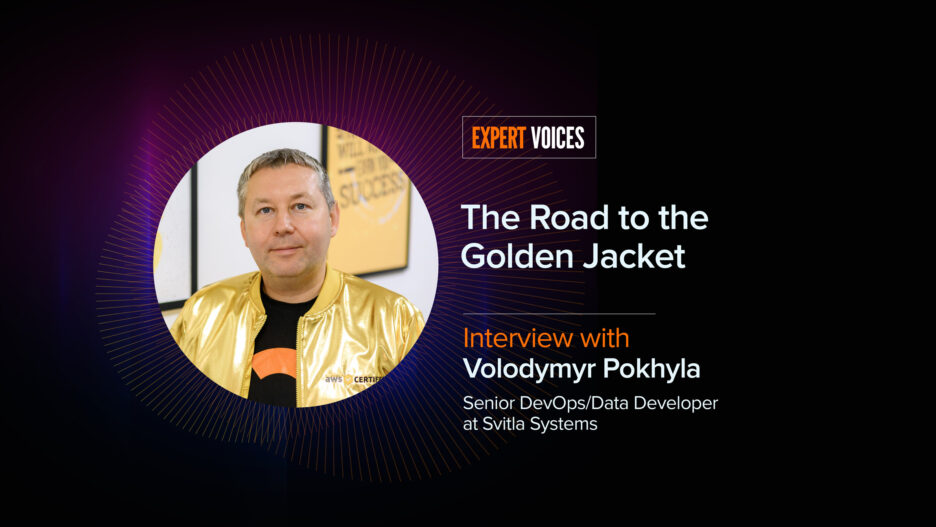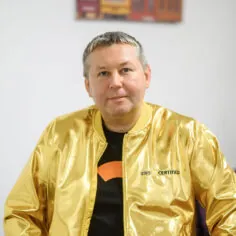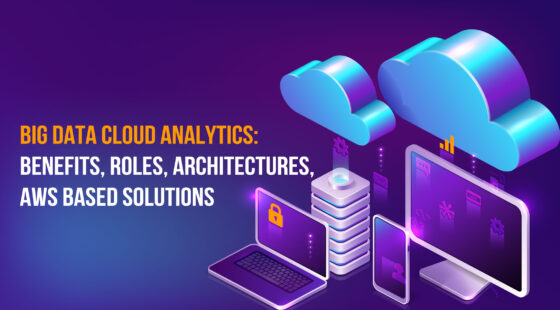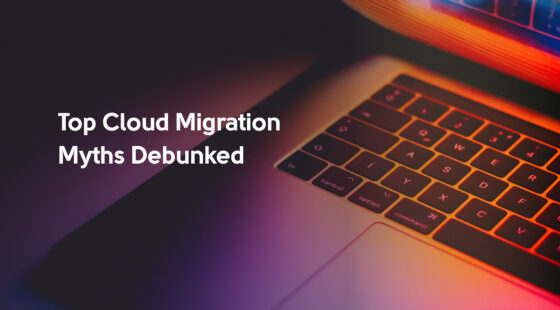Volodymyr Pokhyla, a skilled Cloud/DevOps Architect at Svitla Systems, has recently earned the prestigious AWS Golden Jacket, recognizing his exceptional expertise across all AWS certifications. He’s become one of the rare specialists in Ukraine to receive the award. In Europe, there are about 10 professionals with Golden Jacket and about 100 professionals worldwide.
To honor this achievement, we took an interview with Volodymyr to share some insights into his journey, including his preparation strategies, career development, and experiences mentoring others in the field.
We at Svitla Systems are incredibly proud to have one of such skilled people on board and continue to make an effort to support others who aim to reach excellence in their professional development. For instance, Svitla backs its teammates by covering the exam costs and providing bonuses for getting certified in AWS, Azure, and DevOps. Moreover, we have established Practices, including Cloud, to help engineers get support from their peers every step of the way.
If you are looking to get some inspiration to excel in your career or advice on how to excel in AWS solutions, Volodymyr’s insights and continued motivation might be just the thing!
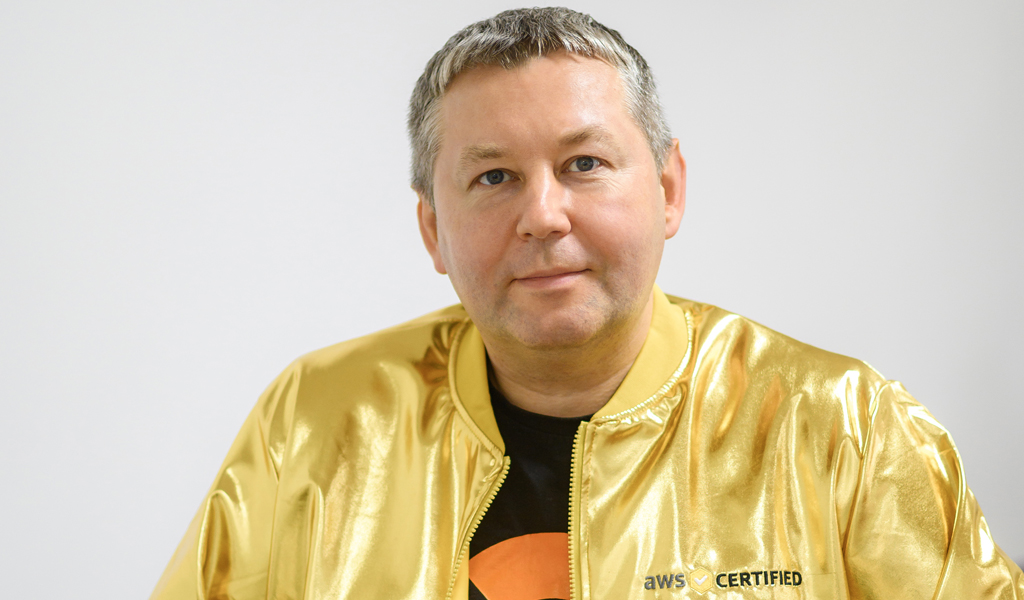
– What is AWS Golden Jacket?
The AWS Golden Jacket is literally a golden jacket that says “AWS Certified” and is awarded to those who have achieved all AWS certifications. This means that a person has technical knowledge and skills in all critical areas of AWS, not just in certain areas, such as other narrow specializations.
The AWS Golden Jacket covers all areas, including current trends such as Machine Learning, Artificial Intelligence, databases, and security. Only those with skills in all AWS areas are eligible to receive it. Today, you need to have all 12 active certifications. I have 13 since one of them (AWS Certified Database – Specialty) has already been deprecated and no longer exists.
Amazon certifications are constantly changing, not just in the scope of included services but also by covering knowledge areas that are on-demand now. Amazon retired 3 certifications in the spring and added two in the summer: one in Machine Learning and one in Generative AI. Holders of such certifications, in my opinion, can claim a higher salary, as this knowledge allows them to adapt to modern IT challenges.
– Do you need to confirm your Golden Jacket status after new certifications appear?
No, confirming anything after receiving the Golden Jacket is unnecessary. If you already have all the certifications, you can voluntarily take new ones to develop, but the jacket will not be taken away from you.
After getting all the certifications, I asked my Technical Account Manager to get the Golden Jacket. He checked my credentials in their Training Certification Center and consulted with my account manager about my level of performance. After that, AWS confirmed my application and started making the jacket. It is made individually for everyone, and when mine was ready, I was sent a tracking number. I received it from the courier on Monday.
– Is there a set timeframe for obtaining the 12 certifications? For example, if I pass one, does the countdown for the rest start?
Yes, each certification is valid for three years. If the first certification was passed more than three years ago, you must retake it to ensure that all certifications are active simultaneously. This is required to obtain the AWS Golden Jacket.
However, take the certifications in the correct order, for example, starting with the Professional Level. These lower levels would be updated if you hold Associate and Practitioner level certifications and obtain or recertify for the Professional level. The Associate and Practitioner certifications will automatically update to the same date as the Professional. That is, all certifications will have the same validity period.
I took the certifications in reverse order – first Professional, then Specialty, then Associate, and finally Practitioner. This rare approach may have influenced AWS's decision to award me the Golden Jacket.
– Why did you decide to go from complex to simple? Was it a challenge for you?
The fact is that I have been working with AWS for many years. Initially, I planned to pass only the Solution Architect Professional and DevOps Professional certifications. Over time, I decided to get the Security certification as well. I was fascinated by it, and I continued to take other certifications. When I got to the Associate Level, I realized that these exams are not so difficult anymore, especially if you have more than 10 years of experience with AWS. In May, I passed six certifications in two weeks: five at the Associate level and one Practitioner.
– You said that AWS doesn't have a warehouse with ready-made jackets. This shows the uniqueness of the award. Do you know the current statistics on how many people hold the AWS Golden Jacket?
As far as I know, only two people in Ukraine have the AWS Golden Jacket. There are no more than 10 such people in Europe and about 100 worldwide. This award is held in Brazil, India, the United States, and the United Kingdom. Germany may also have a few winners, but not many of them. There is no specific information on how to get this award on official resources.
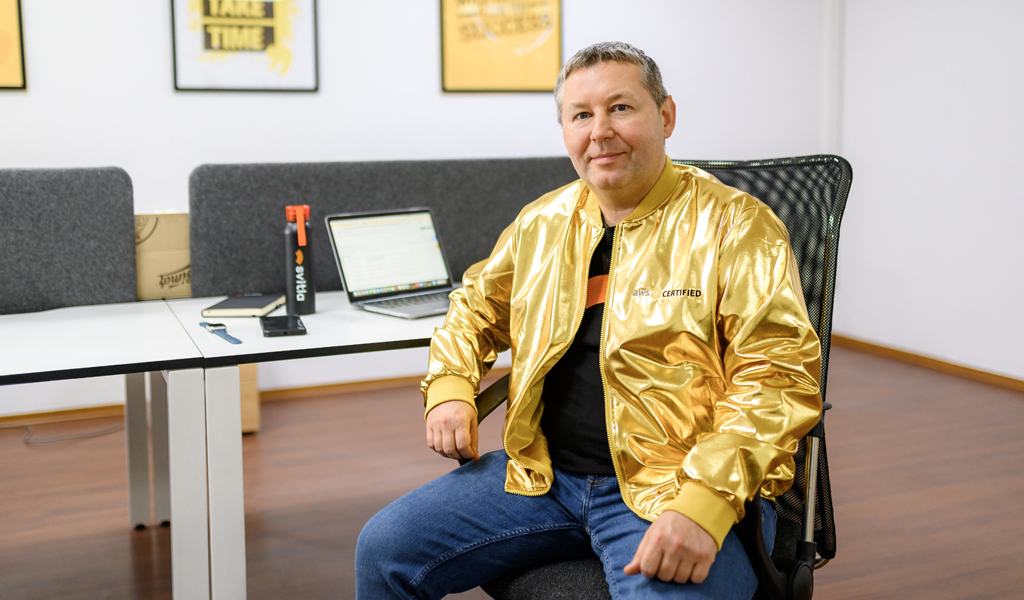
– How did you find out about this award? Are there any communities where you can get information?
I saw information about the AWS Golden Jacket online and started looking for details. I learned that the main requirement is to have all active AWS certifications. However, I also know of cases where people had all the certifications but didn't get the jacket. Some received it after they became AWS Ambassadors or Heroes. In my case, I asked my Technical Account Manager about the award, who consulted with my account manager from the client. After that, they decided to reward me.
– When you received the jacket, was there any letter or explanation explaining why it was a jacket and not, for example, a medal or a cup?
That's a good question, but there was no explanation for these awards. AWS has a Golden Jacket award that recognizes top contributors. The main requirement for receiving it is to keep all certifications active and participate in AWS community events.
Recently, I noticed that CNCF has started its version – the Kubestronaut Jacket. If someone has five Kubernetes certifications, they can get this jacket. But as I heard from my friends who have all the necessary certifications, they have not been given jackets, and in general, the Kubernetes community does not communicate with them much.
By the way, we have more Kube Astronaut certifications than AWS Golden Jacket. Kubernetes certifications are simpler, with only five of them, while AWS has 12 or more levels of complexity. Kubernetes has two basic and three intermediate levels, while AWS has a much wider range.
– Let's talk more about you now. Please tell us what you do at Svitla, how long you have worked there, and your technical specialization.
I joined Svitla about a year and a half ago. I am currently working on a project with a Canadian customer. My main focus is AWS and everything related to DevOps.
I also serve as a dedicated DevOps engineer for the client's data team, which consists of about 60 people: engineers and data scientists. This is a Canadian-American luxury fashion boutique. The main part of the team is located in Canada, and there are also remote teams, including those from Svitla and other vendors.
My main job is solving infrastructure tickets for the data team. They create tickets, and I solve them. I am also involved in presale activities and conducting interviews. Recently, I have been selecting candidates for the Cloud Architect position.
– I see. How did you come to DevOps? Did you have experience in other areas before?
DevOps is a relatively new field, and many people, like me, came to it from the fields of system administration, network engineering, or Linux administration.
I also started as a system administrator and have 11 years of experience in DevOps. I worked in different companies, even heading up directions in large Ukrainian companies and architected departments.
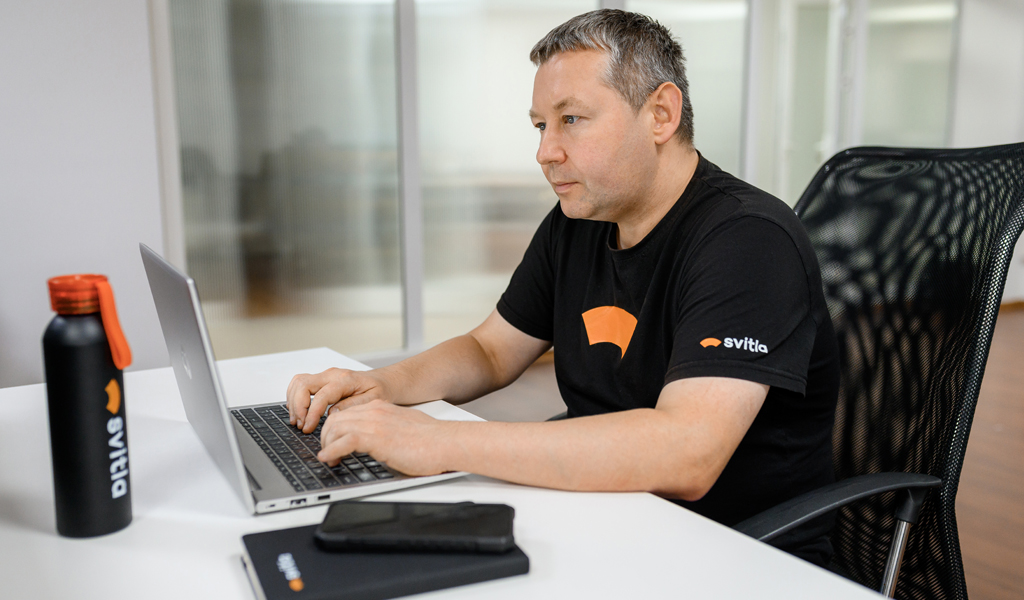
I started my career after graduating from Lviv Polytechnic National University with a degree in computer science. I planned to become a programmer initially, but after several interviews, I realized it was not for me. I got an offer to work as a system administrator at a product company, and I liked it more than programming. That's how I started my career in system administration.
When cloud technologies appeared, everything changed. Companies started looking for specialists who could work with clouds. I started working on virtualization, setting up virtual machines and networks in the cloud instead of physical office networks. That's how I gradually became a DevOps engineer.
– What about certifications? Did you pass any other certifications besides AWS?
Ten years ago, cloud certifications weren’t popular, and few people took them. At that time, Linux certifications, such as X200 and X300, were in demand, but Lviv had no certification centers. Therefore, we arranged with our colleagues and traveled to Kyiv in groups to take these certifications, mostly related to Red Hat: Red Hat System Administrator and Enterprise.
Over time, as cloud technologies began to gain momentum, there was a need to update knowledge and pass certifications in cloud solutions. People began to study clouds more and prepare for certifications, each of which helped to develop and improve their skills. For specialized certifications, this meant that a person has not only individual areas of expertise but can take a comprehensive approach to organizing projects in AWS or other clouds.
Each cloud provider has its certifications. For example, Google Cloud and Microsoft Azure have certifications that focus on different areas: security, databases, machine learning, and artificial intelligence.
– What motivated you to complete all 12 certifications? You didn't have such a plan at first, did you?
Yes, initially, there was no plan to pass all 12 certifications.
– And at what stage did you decide to complete all of them?
As I completed a few certifications, I realized that the next ones, like Security Specialty, were based on similar knowledge but with a security focus. I decided that I could prepare for them in a week or two and pass them successfully. After that, I started preparing for the Advanced Networking – Specialty certification.
When you pass the most demanding certifications first, they can move on to the easier ones faster. From my observations, those who start with the easiest certifications and move on to the harder ones take longer. Completing all the certifications can take two or two and a half years.
– Okay, I see. To reveal more about yourself, please tell us about your mentoring experience. You've already touched on this topic, but it would be interesting to hear more details. Have you worked with teams? How many people did you mentor, and what did you put into these programs?
Yes, regarding mentoring, from 2015-2016, I taught remote students of an online school from Dnipro on weekends. I had several Linux system administrators, one Automation QA, and one developer, all wanting to move to DevOps.
Their goal was to move from Linux administrator or QA to DevOps. Half of the students were not from Ukraine: one was from Azerbaijan and lived in London, another was a Ukrainian from Estonia, and two lived outside of Ukraine. We gathered on Saturdays and Sundays for two months, and I taught them according to a curriculum.
Speaking of companies, I often conducted interviews to evaluate specialists. If a candidate didn’t meet the required level (for example, did not reach the Senior level), I would draw up a PDP (Professional Development Plan). The person worked on this plan for several months, had the opportunity to ask questions, and then was interviewed again. If the progress was noticeable, we raised the level.
Starting in 2018, I focused on teaching friends and acquaintances for free. For example, my friend, who’s serving in the army now, started learning DevOps with me after returning from the ATO. He graduated from SoftServe IT Academy and now works in a military unit doing DevOps tasks. Other students focus on Azure or AWS.
I have always told all my students they need to pass certifications. This is the best way to prove your knowledge. One of them already has 6 certifications: 5 on AWS (including Solution Architect Professional) and Terraform Associate. Another is preparing for his first Azure certification.
– Now, let’s move on to the next block. You talked about preparing your students for certifications. It's interesting to hear about your preparation for certifications. You mentioned that it took a lot of time for you. Are you a self-student, or did you take some led-instructor courses?
I’ve never taken any courses. The only courses I took were on soft skills in one of the companies and courses on architectural frameworks in a large Ukrainian company. But it had nothing to do with certifications.
I have always prepared for certifications on my own. First, this is the AWS Skills Builder platform created by AWS to prepare for their certifications. They provide sample questions and materials to help you navigate the topics. I also use Udemy to practice questions. In some cases, these are the questions I have encountered on certifications.
You need to prepare seriously and invest: a paid subscription to Skills Builder, courses on Udemy, and so on. There are similar platforms for Google Cloud (GCP Skills Boost) and Microsoft Azure Learn, so specialists in these platforms can find the appropriate resources there. You can also study on Udemy, where materials for all platforms are collected.
– Were there any challenges during the preparation that slowed down the process?
Yes, the biggest challenge is the war. Because of Russia's aggression, we have to hide in shelters regularly. When you spend the whole night in a shelter, your productivity decreases. In addition, illnesses also affect the pace of training. I had a break of a month and a half between two certifications due to illness. But when I recovered, and spring came, I accelerated – and in May, I passed six certifications in two weeks.
– Is it more difficult to prepare during a war than before it?
Of course, it was easier to prepare before the war. No worries, no constant interruptions for shelter, you could focus on your studies. But, despite all the difficulties, you must prepare and move on.
– As a person who has gone through the process and created a comfortable environment for studying, do you have any life hacks or tips for those currently preparing for certifications? Perhaps there are some techniques?
I recommend taking a theoretical course and watching videos first. Then, you should practice using platforms like Udemy or Skills Builder. I recommend taking the Practice Exam, a set of questions similar to those on the exam. Combining these three elements gives a person a 40-50% chance of successfully passing the certification.
Usually, the questions in the Practice Exam are a bit more complex than the actual exam. After passing the test, you should carefully read the explanations for the wrong answers. This will help you learn the material and prepare for certification. Although not always successful the first time, students typically successfully pass the certifications after analyzing the mistakes and going through the material again.
- And you have to pay for each attempt, right? If you don't pass the first time, you have to pay again.
Yes, that's right.
– How does AWS motivate people to take the certification?
If a person successfully passes a certification, they get a 50% discount on the next one. If not, there is no discount, and you must pay the total price. Not all companies in Ukraine reimburse certification costs. However, some companies, like Svitla, cover the costs and provide certification bonuses. This is a perfect motivation. I talked to one of our DevOps engineers who boasted that he passed a difficult certification, and the bonus was the (financial) motivation for him.
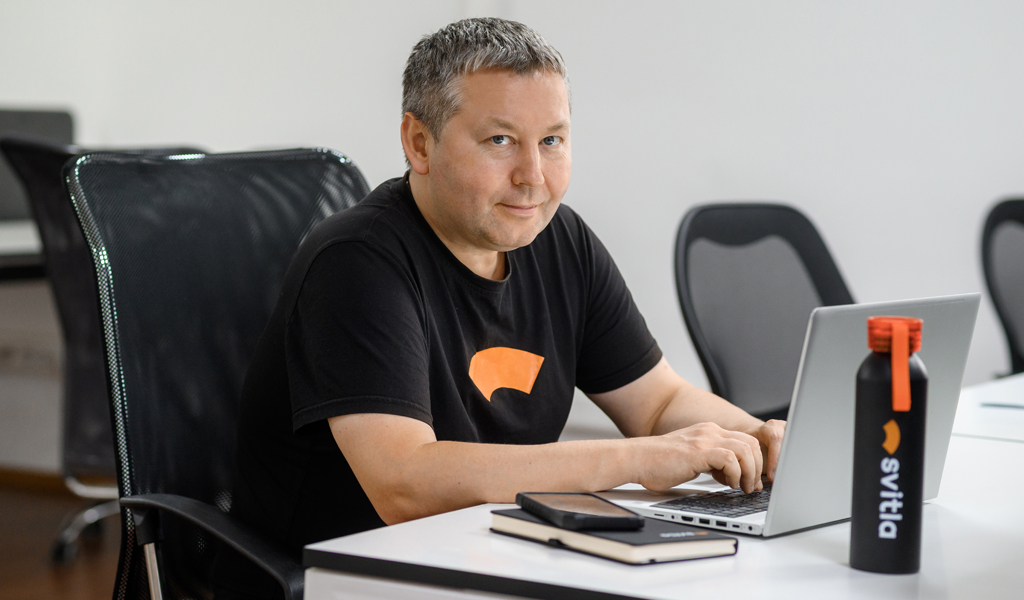
– Did the company support you in preparing for certifications besides financial assistance? Perhaps some kind of community was created where you shared your experience?
Yes, we have a community of certified professionals. When we build a partnership with AWS, we need a certain number of accredited people. Two of us, including me, were sent to the Well-Architected Review course, where we learned how to audit AWS accounts. I always share my experience with colleagues preparing for certifications and recommend resources.
– How long did it take to get the certifications from the first to the last?
I passed ten certifications in four months and three weeks. Then I took a break and passed another one, which took about seven months. After that, I got the Golden Jacket and was waiting for the new certifications that AWS announced. I passed one certification on August 27 and the last one on August 30. So, I got thirteen certifications in eight months.
– Do customers and the team on the client side know about the certifications you got in August?
Yes, they knew about all the certifications I was taking. They supported me and cheered for my success. Recently, I've been talking to a few customers asking how to prepare for the certifications because they want to start taking them as well. There are about 60 specialists in the team I work with, and I'm glad we have such support.
– Some people want to stop or take a break after reaching a certain level. What are your plans for the future? Do you plan to get any more certifications or maybe take a break for personal development?
I started preparing for the CubeStornout program. Also, I want to pass five Kubernetes certifications. I've already talked to colleagues who have gotten these certifications, and they've recommended resources for me to study. These certifications are not as difficult as AWS certifications. I am preparing for them because I have experience preparing students for these certifications.
– So, do you want to add to your jacket collection?
Certainly, Kubernetes is now the industry standard for microservices architecture. Many projects use this technology, and I would like to get certified. Also, the project manager bought a subscription to Google Cloud and allocated time during sprints to study. I am balancing between these areas, although I already have experience with Google Cloud.
– Doesn't it stress you out to prepare for these two areas in parallel?
I don't plan to take Google Cloud certifications, but I want to refresh my knowledge. At the same time, I'm preparing for Kubernetes certifications, which are not so difficult.
– So, was the effort and time you spent preparing for the certifications worth it?
I am satisfied with my progress. People spend years to achieve success, but I passed the certifications in a few months and received a rare distinction from AWS. I recommend everyone who plans to take certifications to develop their skills and implement new technologies in projects.
– Any last thoughts on the overall journey?
Motivation is an important aspect. I've seen a lot of people who start their studies saying they want to work in a specific field. They study for a week or two, and then, when they don't find a job, they disappear.
One of my students was looking for a job for a long time after the start of full-scale aggression in 2022. I helped him with his resume, and he passed certifications to prove his knowledge and eventually found a job. He has been working for over a year and continues to study and plan new certifications.
– Can a person pass the certifications without practical experience?
Theoretically, yes. However, it is vital to try everything in your accounts practically to understand the DevOps terminology. Having at least essential experience to understand how systems interact and pass the certification is better.
– You have a very inspiring background. Motivation is a separate story because many people think getting into IT is easy, but it's not.
Yes, it is difficult. Many young people come to me for advice but often disappear after a few weeks of studying. Many IT schools do not motivate students. For example, one of my students out of 25 people in a group was left with only three who made it to the finish line.
– Why is that?
It's a matter of motivation. People want to combine their studies with work. For example, a friend from America gets up at three to study until five. He works 12 hours a day but dreams of becoming a Python developer and doesn't give up. Everyone needs to understand what they are working for. Motivation is a critical factor in learning and development.

